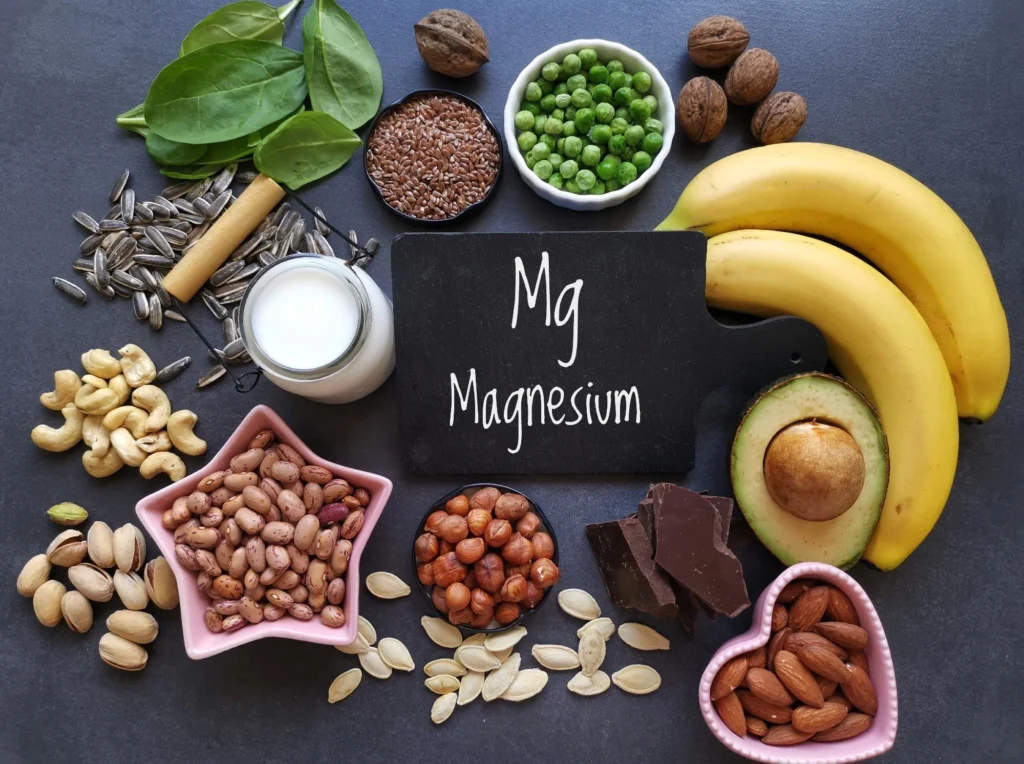Breastfeeding is often celebrated as one of the most natural and beneficial practices for both mother and baby. However, many new mothers face challenges with milk production and seek various ways to enhance their supply. One topic that has garnered interest is the potential role of magnesium in this process.
Magnesium is an essential mineral known for its numerous health benefits, including muscle function, energy production, and maintaining a healthy nervous system. But could it also play a role in boosting breast milk production?
This question has sparked curiosity and research, as understanding the connection between magnesium and lactation could provide valuable insights for nursing mothers seeking to optimize their breastfeeding experience.
Understanding Magnesium
Magnesium, a silver-white metallic element, is the eighth most abundant element in the Earth’s crust. But its significance extends far beyond geology. In the world of biology, magnesium is a vital mineral for the human body. It plays a crucial role in over 300 enzyme reactions, contributing to various physiological processes such as protein synthesis, muscle and nerve function, blood glucose control, and blood pressure regulation.
Interestingly, magnesium also has a role in the structural development of bones and DNA synthesis. It’s involved in energy production, with its presence being essential in the process of converting food into energy. Moreover, magnesium aids in the transportation of calcium and potassium ions across cell membranes, a process vital for nerve impulse conduction, muscle contraction, and normal heart rhythm.
Recommended: Can I Take Magnesium While Breastfeeding?
Despite its importance, the body doesn’t naturally produce magnesium. We must obtain it through our diet, with foods like green leafy vegetables, nuts, seeds, and whole grains being rich sources. However, factors like soil depletion can affect the magnesium content in these foods, making dietary supplements a common way to meet the recommended daily intake.

In conclusion, understanding magnesium is not just about knowing its chemical properties, but also appreciating its indispensable role in human health and well-being. As we continue to explore its potential impacts, such as its influence on breast milk production, we uncover more layers of this remarkable mineral’s contribution to life.
Does Magnesium Affect Breast Milk Production?
Many breastfeeding mothers often wonder if magnesium can influence their breast milk production. The answer to this question is not straightforward, as magnesium does not directly stimulate milk production.
However, magnesium has been found to impart a feeling of calm and relaxation. If a mother’s milk supply is suffering due to high stress, which can happen, a magnesium supplement can help. This is because stress can negatively impact milk production, and by helping the body relax, magnesium can indirectly support breast milk flow.
Moreover, maintaining adequate levels of magnesium in the body is essential for overall lactation health. Magnesium is often recommended for breastfeeding moms who are having trouble with constipation, sleep, cramping, especially leg cramps, those who experience period-related drops in milk supply, migraines, or are dealing with nursing aversions.
While there is some evidence to suggest that magnesium may pass through breast milk and affect a baby, the research on this topic has been limited. Most studies have not looked at any effects from supplementation of magnesium for breastfeeding mothers, milk supply, or on the nursing infant.
Recommended: 10 Best Vitamins For Hormonal Acne
In conclusion, while magnesium does not directly affect breast milk production, it can indirectly support lactation health and potentially aid in managing stress levels, which can, in turn, positively influence milk production.
As always, it’s important for breastfeeding mothers to consult with a healthcare professional before starting any new supplement regimen.
Benefits of Magnesium During Postpartum

Magnesium’s importance becomes even more pronounced during the postpartum period for new mothers. Here are some key benefits:
- Mood Regulation: Magnesium is known to have mood-stabilizing properties. It can help manage postpartum depression and anxiety by regulating the nervous system and reducing stress levels.
- Sleep Quality: Magnesium can improve the quality of sleep, which is often disrupted in the postpartum period due to the demands of a newborn. It aids in the production of melatonin, a hormone that regulates sleep-wake cycles.
- Bone Health: Magnesium is essential for bone health. It aids in the absorption of calcium, which can be particularly beneficial postpartum when the body is recovering.
- Energy Production: Magnesium plays a role in the body’s energy production. This can be beneficial for postpartum women who may be experiencing fatigue due to the physical demands of caring for a newborn.
- Muscle Function: Magnesium aids in muscle relaxation and prevents cramping. This can be particularly helpful for postpartum women who may experience cramping and discomfort following childbirth.
- Lactation: Some studies suggest that magnesium may enhance lactation by influencing prolactin production, a hormone necessary for milk production.
Recommended: Top 5 Foods To Avoid While Taking Letrozole For Fertility
Common Reasons for Taking Magnesium While Breastfeeding
Magnesium is a vital nutrient that plays a significant role in various bodily functions. It’s often recommended for breastfeeding mothers due to its numerous benefits:
- Constipation Relief: Magnesium can help alleviate constipation, a common issue among breastfeeding mothers.
- Improved Sleep: Magnesium can aid in improving sleep quality, which is crucial for new mothers dealing with the demands of caring for a newborn.
- Cramp Alleviation: Magnesium can help relieve cramping, especially leg cramps, which some breastfeeding mothers may experience.
- Milk Supply Regulation: Some mothers experience period-related drops in milk supply. Magnesium can help manage these fluctuations.
- Migraine Relief: Magnesium can help alleviate migraines, providing relief to breastfeeding mothers who may be prone to these intense headaches.
- Nursing Aversions: Some mothers deal with nursing aversions, and magnesium can help manage these negative feelings.
- Bone Health: Magnesium supports bone health, which is naturally compromised while breastfeeding.
- Postpartum Depression and Anxiety: Magnesium may help alleviate symptoms of postpartum depression and anxiety, supporting the mental health of new mothers.
- Fatigue Combat: Magnesium can help combat fatigue commonly experienced by new mothers, supporting muscle recovery post-birth.
Recommended: How To Get Rid Of Smelly Discharge During Pregnancy

Safety Considerations While Taking Magnesium Postpartum
While taking magnesium postpartum, there are several safety considerations to keep in mind:
- Consult a Healthcare Provider: Before starting any new supplement regimen, it’s always a good idea to consult with your healthcare provider.
- Recommended Daily Intake: The Food and Nutrition Board recommends that lactating people between the ages of 19 and 30 consume 310mg of magnesium every day. Those aged 31 and older are recommended to consume 320mg daily. However, it’s also recommended to stay below 350mg of magnesium per day to avoid negative side effects like diarrhea, cramping, and magnesium toxicity.
- Supplementation Methods: There are a few options for consuming more magnesium, including dietary changes, supplements, and drink mixes. Some multivitamins also contain magnesium, such as prenatal vitamins.
- Topical Application: Magnesium is better absorbed through the skin, so using a topical application can help avoid many of the side effects of magnesium, such as diarrhea and/or vomiting.
Remember, while magnesium supplements are generally safe, each individual’s needs and reactions may vary.
Recommended: Can You Drink Gatorade While Pregnant?
Conclusion
Magnesium does not directly stimulate breast milk production; it plays a crucial role in maintaining the overall health of lactating mothers. By helping to manage stress levels and promote relaxation, magnesium can indirectly support healthy milk flow. Furthermore, it can aid in managing common issues faced by breastfeeding mothers, such as constipation, sleep disturbances, and cramping.
However, it’s important to note that while magnesium supplementation can be beneficial, it should always be undertaken under the guidance of a healthcare professional to ensure safety for both mother and baby. Therefore, while magnesium may not directly increase milk supply, its role in supporting a mother’s overall well-being can indirectly contribute to successful breastfeeding.
